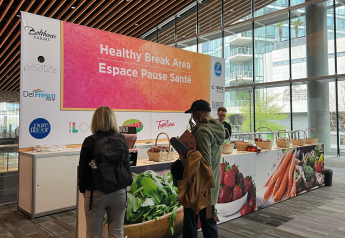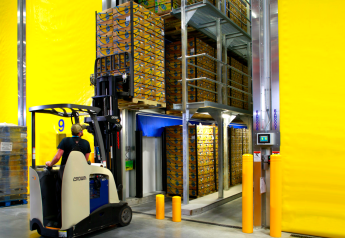TUBAC, Ariz. - While his name never surfaced in sessions during the Fresh Produce Association of the Americas'
Spring Policy Summit March 1, President Donald Trump was the subject of many comments.
Anyone expecting to hear an outright condemnation of his words and policies relating to the people of Mexico and the businesses that depend on trade to the U.S. would have been disappointed. What would that serve?
For all of the woes that Trump seems to want to inflict on businesses that import Mexican produce, most representatives of those businesses are cautiously optimistic and avoid rhetoric when asked about their outlook.
FPAA President Lance Jungmeyer, who spoke alongside the U.S. and Mexican Consul Generals based in Nogales, Mexico, and Nogales, Ariz., respectively, said it simply: Things are going too well to turn back. The only option is forward, by proving to the administration the value of U.S.-Mexico trade.
U.S. Consul General Christopher Teal referred to the current situation as bumps on the road to trade and Mexico's General Consul Ricardo Santana said efforts to slow trade between the countries would be a "temporary and futile attempt."
A week before the Spring Policy Summit, another meeting in Tubac on the importance of U.S.-Mexico trade and its effects on Nogales businesses was more lively, according to coverage in the Nogales International newspaper.
The panelists, including Jaime Chamberlain, president of J-C Distributing, were pressed by audience members on why they don't refute or respond to negative comments involving trade with Mexico and NAFTA.
Chamberlain said it's not productive to respond or speak out about possible border taxes and other policies that are brought up by the administration and then seemingly abandoned or not discussed further.
But there's also an element of fear of a backlash from a leader who's fond of using social media to upbraid those who speak out against him, Chamberlain said.
There are immense returns on investment in Mexico that have added jobs here in the U.S. Turns out, just as with healthcare, trade issues are "extremely complicated," and when you talk to the people involved in making those industries work, you see that changing one part of the system could affect other parts, bringing unintended consequences.
At the Spring Policy Summit, Erik Lee was less of an optimist on how the new administration could affect trade with Mexico. In essence, the White House - but not government agencies such as the Food and Drug Administration or U.S. Department of Agriculture - sees a relationship with Mexico as a confrontational one, a "zero-sum" relationship, said Lee, executive director of the North American Research Partnership.
"I think that the political discourse coming out of the White House is so incredibly different than what we've seen before that it is fundamentally altering diplomacy, and as a result, our policy," Lee said, "and has a great potential to affect longstanding trade and relted policies, and new policies going forward."
Strong words from someone who is considered an expert on how U.S.-Mexico bilateral trade relationships affect border communities such as Nogales, and the businesses that depend on those relationships.
As far as NAFTA, it's certainly been harmful to the U.S. if all you look at is the loss of jobs here in industries that have moved south for whatever reason.
That's a simplistic view, but seems to be the only one Trump considered throughout his campaign and, until very recently, in his short time as president.
There are immense returns on investment in Mexico that have added jobs here in the U.S. Turns out, just as with healthcare, trade issues are "extremely complicated," and when you talk to the people involved in making those industries work, you see that changing one part of the system could affect other parts, bringing unintended consequences.
Nothing happens in a vacuum. Nothing is entirely compartmentalized.
The hopes of better immigration and trade relationships with Mexico in the early days of the George W. Bush administration were set back by 9/11. From then on, security and border issues took center stage.
Lee said in 2010, those conversations began turning back to commerce, marking a new point in the bilateral relationship in Nogales.
That focus ramped up in 2013 with the advent of high-level economic dialogue between presidents Barack Obama and Enrique Pena Nieto, Lee said.
In the current climate, those kind of continued talks are "unthinkable," he said.
There are reasons to remain hopeful, however, with people who have worked with Mexico still playing vital roles in government.
Roberta Jacobson, appointed last April, is the U.S. ambassador to Mexico, and her technical and diplomatic expertise on programs and policies is "without peer," Lee said, and Mexico's new ambassador to the U.S., Geronimo Gutierrez, is the former director for the North American Development Bank and "has more practical knowledge of how border infrastructure works than any other Mexican diplomat," he said.
And despite what the president may have said, the new secretaries of the U.S. Treasury, the State Department and the Department of Homeland Security all have indicated the commercial relationship with Mexico is of the "utmost importance" to the U.S.
And then there's something that has always "made America great": the system of checks and balances that keep the branches of government in line.
What's your take? Leave a comment and tell us your opinion.








